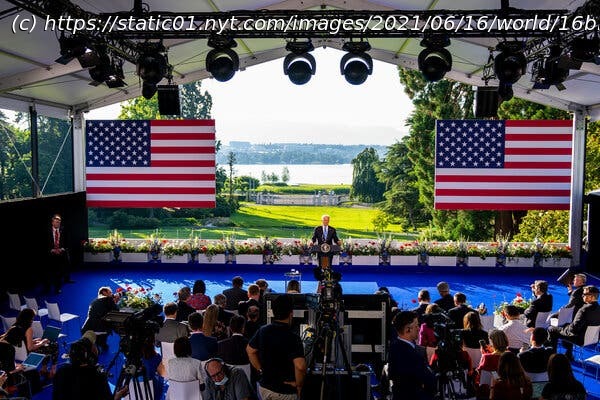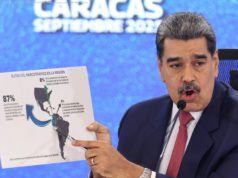After their first summit meeting, the two leaders described each other with respect but resolved none of the disagreements that have sent U.S.-Russian ties to their lowest level since the Cold War.
A highly anticipated first summit meeting between President Biden and President Vladimir V. Putin of Russia ended early on Wednesday and was described by both sides as a series of polite but adamantly stated disagreements about which country is the greater force of global disruption. After four hours of talks, the two leaders emerged, separately, and offered professional respect for each other, like two skilled boxers describing the other’s prowess. Both expressed a desire for a better relationship, but announced no dramatic actions to arrest the downward spiral that has already hurtled them toward the worst U.S.-Russian tensions since the Cold War. In dueling news conferences on the edge of Lake Geneva, a traditional site for two of the world’s most powerful antagonists to discuss their differences, the two leaders committed to the creation of working groups to deal with urgent issues, starting with arms control and the proliferation of cyberattacks. They agreed to send ambassadors back to each other’s capitals, Mr. Putin said, and expressed interest in working in some areas of mutual interest, from the Arctic to Afghanistan. “There has been no hostility,’’ Mr. Putin said, speaking about the meeting. Mr. Biden declared “I did what I came to do,’’ including laying out a series of warnings and red lines for the Russian leader, which he insisted were not “threats.” Mr. Biden emerged offering some modest optimism that America has restored its alliances with Europe and has made Mr. Putin more cautious about any actions regarded as being against American interests. “I think the last thing he wants now is a Cold War,’’ Mr. Biden said at his news conference, describing Mr. Putin as the struggling leader of a declining economy who was worried about the growth of an expansionist, aggressive China on his border. But Mr. Biden also said he had handed the Russian leader a list of 16 examples of “critical infrastructure,’’ and had made clear that if they were attacked, “we have significant cyber capabilities” and would respond “in a cyber way.” Mr. Biden said there had been no hyperbole and no talk of military intervention in their exchanges, which he described as “simple assertions.” But his warning that accelerating Russian cyber operations would get an in-kind response could signal a significant escalation in the daily cyber conflict now underway among major and lesser powers, including China, Iran and North Korea. American officials have usually shied away from major cyber operations against Russia, fearing that they might not be able to control the escalation of strikes and counterstrikes. While Mr. Biden has begun a crash effort to reduce the vulnerability of American assets, from pipelines to power plants, it is an effort that will take years, and will never protect every weakness. Mr. Putin, for his part, denied that Russia had been responsible for the range of attacks on the United States.
Home
United States
USA — Science Biden and Putin Express Desire for Better Relations at Summit Shaped by...






